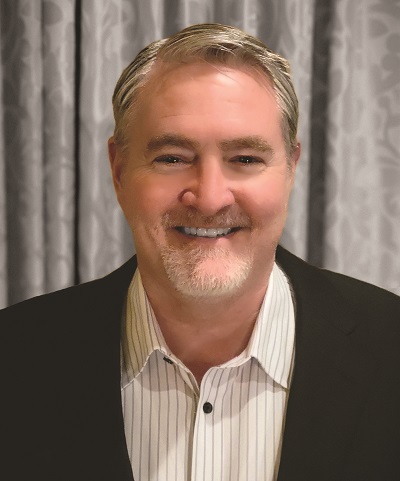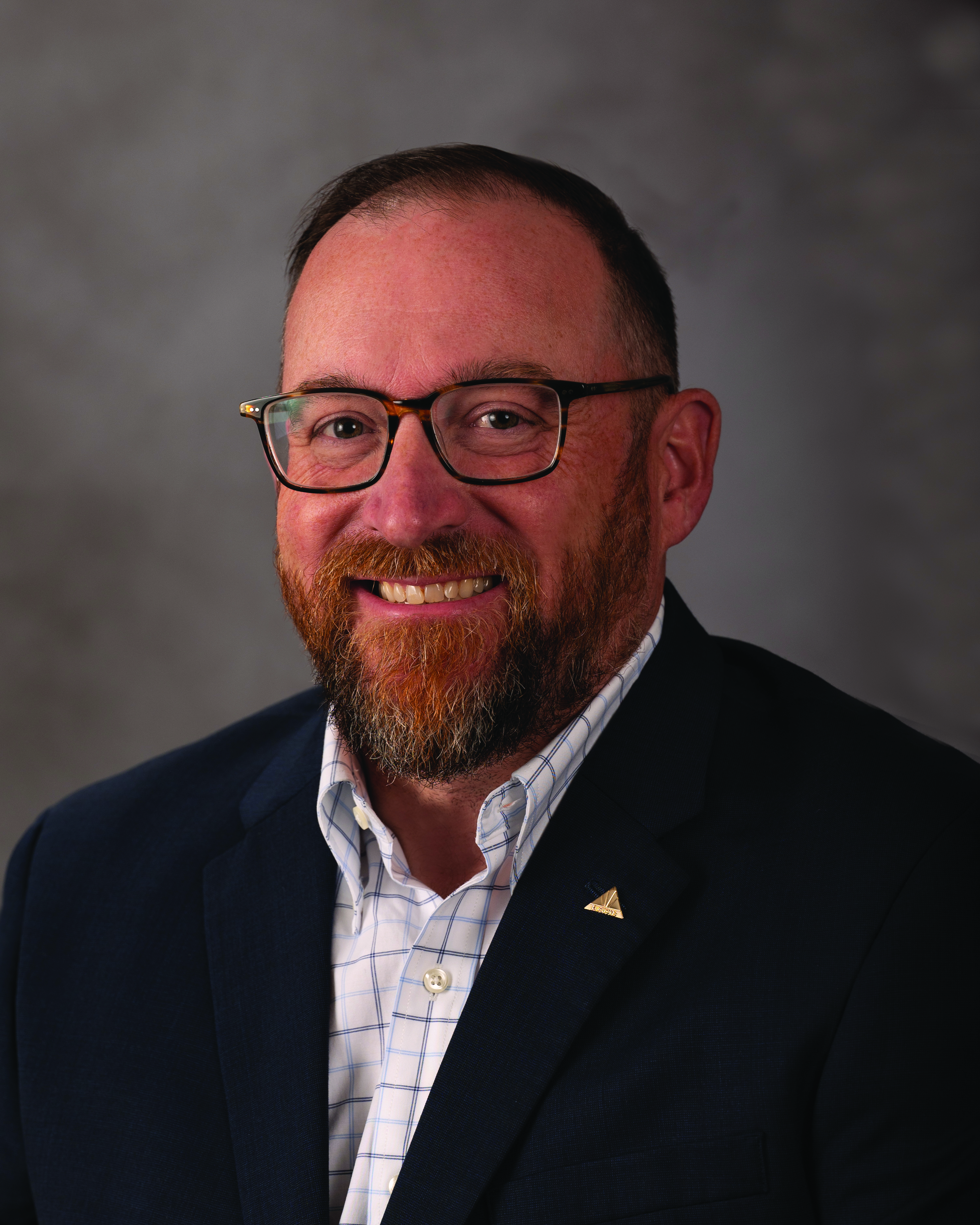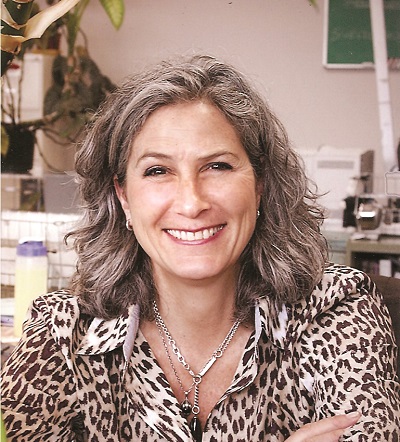
Paul Fogle,
Managing Director,
Quality Equipment Finance

Dave Lyder,
EVP & Group Leader,
Ascentium Capital

Deborah Monosson,
President & CEO,
Boston Financial & Equity Corporation

Adam Peterson,
Managing Director,
Channel
The landscape for funding sources has shifted a great deal over the last year. With interest rates at the highest level recorded in more than a decade, turmoil in the banking industry after several notable bank failures in 2023, and geopolitical tensions at heightened levels due to the Russia-Ukraine war and the Israel-Hamas war, there has been a great deal of uncertainty in the market.
To compliment the Funding Source Spotlight section in this issue, which features 24 funding sources that serve the equipment finance marketplace (see page 47), Monitor sat down with Paul Fogle, managing director at Quality Equipment Finance; Dave Lyder, executive vice president and group leader at Ascentium Capital; Deborah Monosson, president and CEO of Boston Financial & Equity Corporation; and Adam Peterson, managing director at Channel to assess the state of the funding source space. These leaders weigh in on current deal flow, challenges lenders are facing, concerns about credit quality and the rise of fraud, and how geopolitical and banking turmoil are impacting their businesses.
These leaders also provided an outlook for the equipment finance industry in 2024 as they navigate a complex economic situation and face what will inevitably prove to be a tumultuous presidential election year.
How is the level of deal flow activity today versus what it was a year ago and do you expect current deal flow levels to continue as 2024 progresses?
PAUL FOGLE: Rising interest rates have slowed lending for many traditional lenders, which tends to be fortuitous for independents like Quality. As they increase rates and tighten parameters, we’ve been fortunate to hold steady, which has led to an increase in app[lication] volume that we don’t see slowing down in the coming months.
DAVE LYDER: On a macro level, 2024 is an example of the benefits that come from working with a financial provider that is well positioned to support clients through a wide range of economic cycles. Indeed, we are seeing some softness in the market based on the macro environment, which has resulted in some credit tightening and a slight decrease in overall funding activity. For example, we are seeing where some companies, especially small businesses, are delaying capital investments until the economic landscape becomes clearer. This means we’re seeing a lot of what we call “true business essential” equipment-financing needs, more so than what we’d call opportunistic investment.
All that said, this is also a time when we can do some of our best work. Our focus at Ascentium, in conjunction with our parent company, Regions Bank, is to work with commercial banking clients to not only provide financing, but also help companies maximize their operations and cash flows in ways that position them for success through a variety of conditions. Many times, a business needs more than just a lending solution to acquire equipment. They need a financial provider that can look at the big picture. There are other solutions, like treasury management services, that we can leverage to help companies optimize cash flow, allocate more of their resources toward revenue generation and more. A relationship-based approach helps our company provide more than just lending.
DEBORAH MONOSSON: 2024 has started out a bit slow for Boston Financial versus the same time last year. I am hoping that this changes going into the second and third quarters of 2024, but our niche is equity-backed startups and the venture industry has contracted a bit, with a dearth of IPOs and some of the highest numbers of startups being closed down in 2023.
ADAM PETERSON: Our application flow has been on an upward trajectory compared to 2023, though we’ve noted a decrease in conversion rates relative to historical origination vintages. We anticipate that application flow will continue to rise throughout 2024 but also believe that supply chains have normalized. Borrowers will continue allotting time to make fully informed and prudent decisions about capital expenditures.
What are the biggest challenges you have faced as a funding source over the last 12 months?
FOGLE: In this respect, we don’t seem to be much different than any other business or consumer lending company in the U.S. today; delinquencies and charge-offs have been challenging. As an industry, we experienced historically low percentages in both categories in the past, and it’s more than fair to say we are seeing higher than “normal” levels today. Also, the cost of capital across the board has made it more difficult for our customers to afford higher payments.
LYDER: It’s not a new challenge, but I would say there’s an even stronger focus on balancing risk versus return. With the higher-for-longer interest rate environment and some economic uncertainty, one needs to be all the more vigilant regarding the assets that are being funded. Quality matters now more than ever. A prudent approach to risk management is crucial at all times, and it drives our conversations with clients to ensure we’re providing the right level of service to meet their needs today and help position them well for the future.
MONOSSON: Our biggest challenge the past 12 months has been supporting and getting creative when clients have hit a bump in the road. We have worked to stretch payments or accept partial payments while they wait for another slug of equity. In one case, [a client] had a major problem with their equipment working correctly. Whatever the reason they may not be able to make their payment that month — or on time — we try to work with them. We were taught any amount you can collect is better than no amount.
PETERSON: In the past 12 months, we have all had to navigate an unprecedented rise in interest rates, causing significant spread erosion, liquidity constraints and stress on small businesses nationwide. Coupled with rate hikes, specific industry segments have experienced portfolio and credit deterioration. Implementing swift adjustments to front-end credit policies and criteria while ensuring our back-end collections teams were prepared are two key challenges of this past year.
Are you more concerned about credit quality and/or fraud today than you were one year ago? Why or why not?
FOGLE: More challenging economic times make the better credits stand out, so it gets somewhat easier to identify strong companies. For companies that aren’t managed well, good economic times can mask more inherent severe issues. As technology becomes increasingly advanced and accessible for us, it also does for those perpetrating fraud, which does cause greater concern. We’ve implemented systems and leveraged technology to help mitigate fraud, which is helping us catch it before it becomes problematic, but we certainly do seem to be encountering more attempts at fraudulent activity than before.
LYDER: Strong credit quality and effective fraud prevention are “always on,” year-round priorities for Ascentium Capital and Regions Bank. So, I wouldn’t say we’re more concerned today. Rather, we take it just as seriously today as we did a year ago. The keys, especially in terms of fraud prevention, are to partner with the right people to help ensure we’re proactively working to protect the company and our clients while building awareness and providing educational resources to help the client also better protect themselves.
Credit quality is absolutely foundational. If you are not focusing on credit quality day in and day out and are not monitoring it in a diligent and consistent manner, you are missing essential opportunities to deliver your best to clients. We prefer to work with clients collaboratively, extending credit where it makes the most sense and leveraging solutions with our colleagues at Regions Bank to support more business objectives that can help clients build, protect and enhance their business.
It is the same with fraud. Fraudsters are always coming up with new ways to try to impact specialty finance companies, deploying a variety of techniques, both old and new, high-tech and low-tech. Our focus has remained the same year in and year out. We are always trying to stay one step ahead of the fraudsters, building out better detection techniques, prevention measures and early warning indicators.
MONOSSON: For Boston Financial, it would be credit quality. Let me qualify that none of our credits are quality credits, most have zero to little revenue, so for us it is the quality of future investments or that they can keep their current burn to their projections.
PETERSON: Our credit quality at a macro level has remained strong, but we’ve got our eye on certain industries beyond transportation that are showing some signs of stress. This has prompted us to dig a bit deeper, conducting extra analysis to figure out the best way forward. Additionally, we’re noticing a bit of tension in the elevated assets prices from 2020 to 2022 due to supply chain constraints.
How are current geopolitical events affecting your business?
FOGLE: I have been following closely the attacks on ships in the Red Sea by Yemen’s Houthi rebels, who claim their attacks are against countries that support Israel. The Suez Canal/Red Sea is vital for around 30% of the world’s container traffic. Having to reroute around the southern tip of Africa adds additional costs and 10 days of travel time, increasing prices and creating shortages of certain goods. If shipping routes around the globe become too dangerous, the consequences would be disastrous to the world economy.
Related to shipping, I’m also following the effects of low water levels in the Panama Canal. They can’t move as many ships that require deep water, and this has reduced traffic through the canal by 40% compared to last year. This negatively affects exports from the East Coast to Asia and Asian imports to the U.S.
LYDER: We have not seen a significant correlation between current geopolitical events and business volume.
MONOSSON: It does not seem to affect our niche in the marketplace.
PETERSON: While challenging to pinpoint specific effects of geopolitical events on certain industries, one thing is evident: market noise makes borrowers pause. We’re observing this in our conversion rates and the timing from approval to funding. Instances like the Russia-Ukraine war, notable stock market shifts or election cycles, for example, clearly contribute to this trend. Long term, our metrics always revert to the mean, but you do see short-term implications in our application funnel.
How have higher interest rates and turmoil in the banking industry impacted the cost and availability of funds?
FOGLE: A [federal funds rate] moving from nearly zero to 5.5% in just a year and a half has affected everyone in financial services and, naturally, some more than others, but for all of us, our cost of funds has increased. With increased uncertainty in the economy, spreads have widened as well. Much of the increased cost gets passed along to our customers, which makes it more challenging for them to be profitable. Banks have certainly reduced their appetite for certain types of debt and decreased the rigor to which they’d been willing to lend for so long. Availability of funds is more challenging as a result.
LYDER: This is another area where being a division of Regions Bank is a huge competitive advantage, both for our clients and for Ascentium Capital itself. Liquidity simply is not an issue for Ascentium. Regions as a company has a diversified business mix and a solid balance sheet, supported by a wide range of services for clients across multiple industries. A result of this is we are able to, indeed, deliver equipment financing for companies that simply need a solution for a major expense. But we are also able to deliver more value in ways that go well beyond equipment. I mentioned treasury management solutions earlier, and we can assist with cash-flow management, purchasing systems and more. Our Regions leadership has done a wonderful job navigating the current landscape, and it gives us a clear differentiator in the marketplace.
MONOSSON: The turmoil in the banking industry, especially with Silicon Valley Bank, has helped us. The higher interest rates have not affected us.
PETERSON: Maintaining spreads has been a challenge given market conditions and pressures. However, within our facilities we have not yet been directly affected by the volatility occurring in the banking sector. Diversifying liquidity and aligning with the right capital providers has long been a strategic priority for Channel, and fortunately, our strong partnerships have proven advantageous in navigating these times effectively.
What’s your outlook for the equipment finance industry in 2024?
FOGLE: It seems leading economic indicators are no longer signaling a recession and it’s anticipated that the Fed will cut interest rates in 2024, so I’m optimistic about the coming year. We’ll see freight markets improving through continued consumer spending, inventory restocking and capacity becoming more balanced. Decreases in interest rates build more confidence, which will have an overall positive impact on the economy and, in turn, the equipment finance industry.
LYDER: I think there will be some choppy waters with the economic uncertainty (Will we have a soft landing, hard landing or no landing?) and the interest rate environment (i.e. higher for longer). Even with the aforementioned items, I have a positive outlook on 2024. Businesses for the most part are healthy with the exception of some sectors seeing stress in the near and mid terms. But from a broader perspective, we see job growth continuing overall and American consumers are still healthy, both of which speak to continued strength in the business marketplace, even if overall demand comes down a bit as expected.
MONOSSON: I am usually optimistic and always think the next year will be better, but with global turmoil and presidential elections there just seems to be a lot of uncertainty. Yet, I think in our market niche this usually sparks creativity and new opportunities!
PETERSON: We anticipate that our industry will continue to experience ongoing stress in liquidity and portfolio performance through Q2/24. That said, in the second half of this year, I remain optimistic about a substantial rebound in originations, portfolio performance, credit quality and liquidity through some market condition stabilization and our industry’s resilience in adapting to economic headwinds. •
No categories available
No tags available